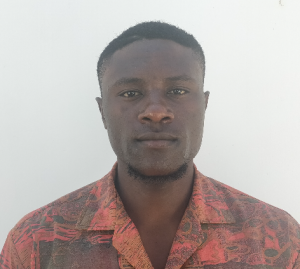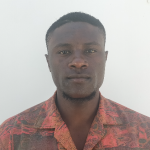St Paul's Ebusia Secondary School is located along the Malaa-Isongo road in Mumias East. At the back of the school, there are households and farmland, and on the left is the Lusumu River. The secondary school neighbors a polytechnic school and a church. It was established in 1887 on a Harambee basis, the Kenyan tradition of community self-help events where people come together to accomplish something for the greater good of the group. The school's original objective was to enable young girls and boys from humble backgrounds to access secondary education. The dream was achieved 10 years later when the school got registered with the government in 1998.
Madam Josephine Khadiagala was the first principal and that same year the school became a Catholic school. Students' performance at the school in Kenya's national examinations have slowly improved over the years, but they are being held back by how much time they waste searching for water to cover their needs throughout the school day.
There are more than 650 students and teachers at St. Paul's Ebusia Secondary, including a boarding section of about 155 students. With water needs ranging from drinking, cleaning, handwashing, showering, and laundry, the school faces a high daily demand for water yet falls short of meeting their needs.
The main source of water on campus is a hand-dug well that dries up during the dry season each year and is easily contaminated. The water often gives off a foul odor and is colored - indications the water is not safe for human consumption. The school has experienced outbreaks of Cholera, which it attributes to the contaminated well water.
The only other source of water at school is a small plastic rain tank that quickly dries up after each rain due to the high rate of use. To complement these sources, the school also requires students to walk to a spring off-campus throughout the day to fetch more water to bring back to campus, causing them to miss class.
"During lunchtime, there is no water to wash your plates or to drink water. Because of the contaminated water in the hand-dug well, this forces us to go out of the school to fetch water, hence, it wastes our time," explained student Jacinta.
"The well is inconsistent in that the water is not available all the time. Also, during the scrambling for water, the students contaminate the water, which the teachers also drink. This causes a hazard," said teacher Dominic Wamalwa, referring to the way students have to lower a bucket on a rope into the well to pull up the water. Each dip of the bucket carries germs and dirt from aboveground, and students' hands, back down into the already-contaminated water.
Nearby community members here also face challenges accessing sufficient clean water. The school has made an agreement with the homes around the school, totaling some 300 community members, that they will also be allowed to fetch water from the planned borehole well following a mutually agreed-upon schedule so that the adults do not disrupt the students' school day or water needs.
What We Can Do:
New Well
We conducted a hydrogeological survey at this school, and the results indicated the water table beneath it is an ideal candidate for a borehole well. Due to a borehole well's unique ability to tap into a safe, year-round water column, it will be poised to serve all of the water needs for this school's large population, even through the dry months.
The school will help collect the needed construction materials such as sand, rocks, and water for mixing cement. They will also provide housing and meals for the work team, in addition to providing local laborers. We will complement their materials by providing an expert team of artisans and drilling professionals, tools, hardware, and the hand-pump. Once finished, the school’s students and staff will use water from the well and staff for drinking, handwashing, cooking, cleaning, and much more.
The school and we strongly believe that all of these components will work together to improve standards at this school, which will help lead to better student academic performance and unlock the opportunity for these students to live better, healthier lives.
Handwashing Stations
The student health club will oversee the two new handwashing stations we will provide and ensure they are kept clean and in working condition. The club leaders will fill the handwashing stations with water daily and make sure they are always supplied with a cleaning agent such as soap or ash.
VIP Latrines
Two triple-door latrine blocks will be constructed with local materials that the school will help gather. Three doors will serve the girls, and three doors will serve the boys. These new latrines will have cement floors designed to be easy to use and clean. And with a rain tank right on school property, there should be enough water to keep them clean.
Training on Health, Hygiene, COVID-19, and More
We will hold a one-day intensive training session with students, teachers, and parents. This training will cover a wide range of topics, including COVID-19 symptoms, transmission routes, prevention; personal and environmental hygiene; and the operation and maintenance of the rain tank, latrines, and handwashing stations. There will be a special emphasis on handwashing.
Our team of facilitators will use various methods to train, including participatory hygiene and sanitation transformation and asset-based community development. We will initiate a student health club, which will prepare students to lead other pupils into healthy habits at school and home. We will also lead lectures, group discussions and provide illustrative handouts to teach health topics and promote good hygiene practices within the school, including handwashing and water treatment. We will then conduct a series of follow-up training before transitioning to our regularly scheduled support visits throughout the year.

 Borehole Well and Hand Pump
Borehole Well and Hand Pump
 Rehabilitation Project
Rehabilitation Project



































